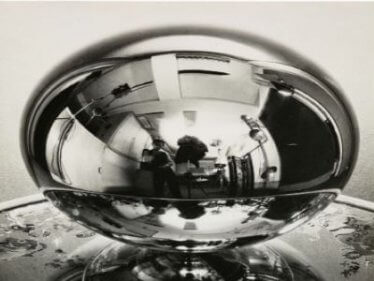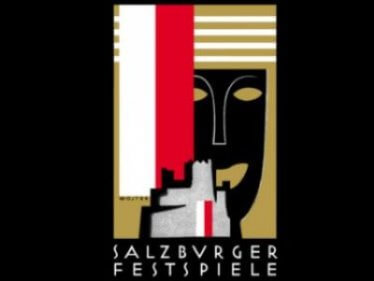Zdenek Adamec - Schedule, Program & Tickets
Zdenek Adamec
OCCUPATION
With Matthias Brandt, Andre Kaczmarczyk, Eva Löbau, Sophie Semin, Barbara Sukowa and others
A group of people get together. Without mentioning number, age, gender, or nationality, the author lets them meet, as many as "the game that ours will need." A conversation unfolds, seemingly without cause and without clear associations between speaker and speaker, but with a theme, a story: "When Zdeněk Adamec, 18 years old, from Humpolec in the Bohemian Highlands, burned himself on Wenceslas Square in Prague, it was one morning, and it was early March. "The historical case from 2003 becomes the common thread in a web of questions and answers, guesses and doubts, information and anecdotes. While the characters are trying to reconstruct the event in its political-historical context, a fictional psychogram of the young Czech Zdeněk Adamec emerges, who literally wanted to make fun of his disturbing act against what he considers the unbearable state of the world. In speech and counter-speech, a small (perhaps international?) Society is formed.
"In any case, we, locals, newcomers, residents, foreigners, young people, older people, together with our various accents, have something of late or last guests." In the dialogical compilation of knowledge and narrative material, the characters invented explicitly by the author fall into play a reflection on yourself and your own relationship to the world. Clearly heard in this musically composed, polyphonic speech Peter Handke's voice. His text also appears as a self-reflection of the already older man in the very young - a poetic juxtaposition and sympathy with the passage of time? But Zdeněk Adamec is also a literary search for the opportunity to live on the example of a tragically failed.
Peter Handke, one of the linguistically most powerful poets of our time, proposes a playful tone in his latest play, which almost floats from the objective to the flippant, from irony to pathos. In the end, something like agreement with the irreconcilable in the world sounds, a peaceful, cheerful, uncommented bravery, which seems to gain its strength not least from talking to one another, from language.
Peter Handke is one of the most important writers of our time and has been awarded the most important international literature awards. In 2019 he receives the Nobel Prize for Literature "for an influential work that examines with linguistic genius the periphery and the specificity of human experience". After decades of changing places of residence and constant travel Peter Handke lives since 1990 in Chaville near Paris. He is associated with Salzburg and the Festival through a long-standing, occasionally close personal and artistic relationship. Some of his most important works were written when, in the 1980s, the poet lived in the same place for him for an unusually long time: at the Mönchsberg in Salzburg.
Peter Handke made his debut at the Salzburg Festival in 1982 with his dramatic poem Über die Dörfer im staging by Wim Wenders. In 2011 Sturm still experienced the historical poetic reworking of his family history, on Perner-Insel in Hallein, directed by Dimiter Gotscheff, a world premiere euphorically celebrated by the press and the public.
The premiere of his latest theater text Zdeněk Adamec will feature Friederike Heller, one of the most successful German-speaking theater directors of her generation. Since she was named Young Director of the Year at the Vienna Burgtheater for her production of Peter Handkes Untertagblues in 2005 and debuted in the context of the Young Directors Project 2006 at the Salzburg Festival with the production of Handke's The Irrational, she is always as smart with her how formally idiosyncratic interpretations of his and other plays emerged.
Subject to change.
With Matthias Brandt, Andre Kaczmarczyk, Eva Löbau, Sophie Semin, Barbara Sukowa and others
A group of people get together. Without mentioning number, age, gender, or nationality, the author lets them meet, as many as "the game that ours will need." A conversation unfolds, seemingly without cause and without clear associations between speaker and speaker, but with a theme, a story: "When Zdeněk Adamec, 18 years old, from Humpolec in the Bohemian Highlands, burned himself on Wenceslas Square in Prague, it was one morning, and it was early March. "The historical case from 2003 becomes the common thread in a web of questions and answers, guesses and doubts, information and anecdotes. While the characters are trying to reconstruct the event in its political-historical context, a fictional psychogram of the young Czech Zdeněk Adamec emerges, who literally wanted to make fun of his disturbing act against what he considers the unbearable state of the world. In speech and counter-speech, a small (perhaps international?) Society is formed.
"In any case, we, locals, newcomers, residents, foreigners, young people, older people, together with our various accents, have something of late or last guests." In the dialogical compilation of knowledge and narrative material, the characters invented explicitly by the author fall into play a reflection on yourself and your own relationship to the world. Clearly heard in this musically composed, polyphonic speech Peter Handke's voice. His text also appears as a self-reflection of the already older man in the very young - a poetic juxtaposition and sympathy with the passage of time? But Zdeněk Adamec is also a literary search for the opportunity to live on the example of a tragically failed.
Peter Handke, one of the linguistically most powerful poets of our time, proposes a playful tone in his latest play, which almost floats from the objective to the flippant, from irony to pathos. In the end, something like agreement with the irreconcilable in the world sounds, a peaceful, cheerful, uncommented bravery, which seems to gain its strength not least from talking to one another, from language.
Peter Handke is one of the most important writers of our time and has been awarded the most important international literature awards. In 2019 he receives the Nobel Prize for Literature "for an influential work that examines with linguistic genius the periphery and the specificity of human experience". After decades of changing places of residence and constant travel Peter Handke lives since 1990 in Chaville near Paris. He is associated with Salzburg and the Festival through a long-standing, occasionally close personal and artistic relationship. Some of his most important works were written when, in the 1980s, the poet lived in the same place for him for an unusually long time: at the Mönchsberg in Salzburg.
Peter Handke made his debut at the Salzburg Festival in 1982 with his dramatic poem Über die Dörfer im staging by Wim Wenders. In 2011 Sturm still experienced the historical poetic reworking of his family history, on Perner-Insel in Hallein, directed by Dimiter Gotscheff, a world premiere euphorically celebrated by the press and the public.
The premiere of his latest theater text Zdeněk Adamec will feature Friederike Heller, one of the most successful German-speaking theater directors of her generation. Since she was named Young Director of the Year at the Vienna Burgtheater for her production of Peter Handkes Untertagblues in 2005 and debuted in the context of the Young Directors Project 2006 at the Salzburg Festival with the production of Handke's The Irrational, she is always as smart with her how formally idiosyncratic interpretations of his and other plays emerged.
Subject to change.
There are no products matching the selection.



